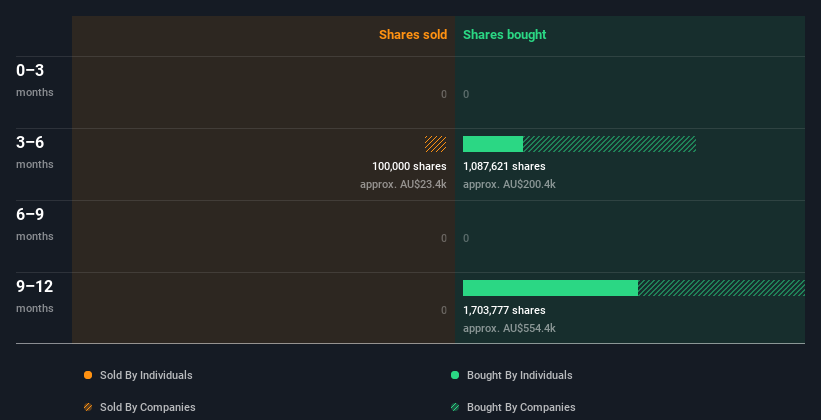Insiders who purchased Duke Exploration Limited (ASX:DEX) earlier this year lose an additional AU$142k as the stock sinks to AU$0.17
The recent price decline of 11% in Duke Exploration Limited's (ASX:DEX) stock may have disappointed insiders who bought AU$323k worth of shares at an average price of AU$0.29 in the past 12 months. This is not good as insiders invest based on expectations that their money will appreciate over time. However, as a result of recent losses, their original investment is now worth only AU$181k.
While we would never suggest that investors should base their decisions solely on what the directors of a company have been doing, we would consider it foolish to ignore insider transactions altogether.
See our latest analysis for Duke Exploration
The Last 12 Months Of Insider Transactions At Duke Exploration
Over the last year, we can see that the biggest insider purchase was by insider Keiran Slee for AU$271k worth of shares, at about AU$0.34 per share. That means that even when the share price was higher than AU$0.17 (the recent price), an insider wanted to purchase shares. Their view may have changed since then, but at least it shows they felt optimistic at the time. In our view, the price an insider pays for shares is very important. It is generally more encouraging if they paid above the current price, as it suggests they saw value, even at higher levels.
In the last twelve months Duke Exploration insiders were buying shares, but not selling. They paid about AU$0.29 on average. I'd consider this a positive as it suggests insiders see value at around the current price. The chart below shows insider transactions (by companies and individuals) over the last year. If you want to know exactly who sold, for how much, and when, simply click on the graph below!
There are always plenty of stocks that insiders are buying. So if that suits your style you could check each stock one by one or you could take a look at this free list of companies. (Hint: insiders have been buying them).
Insider Ownership
Many investors like to check how much of a company is owned by insiders. A high insider ownership often makes company leadership more mindful of shareholder interests. Duke Exploration insiders own about AU$7.0m worth of shares (which is 40% of the company). I like to see this level of insider ownership, because it increases the chances that management are thinking about the best interests of shareholders.
So What Does This Data Suggest About Duke Exploration Insiders?
The fact that there have been no Duke Exploration insider transactions recently certainly doesn't bother us. On a brighter note, the transactions over the last year are encouraging. It would be great to see more insider buying, but overall it seems like Duke Exploration insiders are reasonably well aligned (owning significant chunk of the company's shares) and optimistic for the future. In addition to knowing about insider transactions going on, it's beneficial to identify the risks facing Duke Exploration. Our analysis shows 5 warning signs for Duke Exploration (2 are concerning!) and we strongly recommend you look at these before investing.
If you would prefer to check out another company -- one with potentially superior financials -- then do not miss this free list of interesting companies, that have HIGH return on equity and low debt.
For the purposes of this article, insiders are those individuals who report their transactions to the relevant regulatory body. We currently account for open market transactions and private dispositions, but not derivative transactions.
Have feedback on this article? Concerned about the content? Get in touch with us directly. Alternatively, email editorial-team (at) simplywallst.com.
This article by Simply Wall St is general in nature. We provide commentary based on historical data and analyst forecasts only using an unbiased methodology and our articles are not intended to be financial advice. It does not constitute a recommendation to buy or sell any stock, and does not take account of your objectives, or your financial situation. We aim to bring you long-term focused analysis driven by fundamental data. Note that our analysis may not factor in the latest price-sensitive company announcements or qualitative material. Simply Wall St has no position in any stocks mentioned.

 Yahoo Finance
Yahoo Finance 
